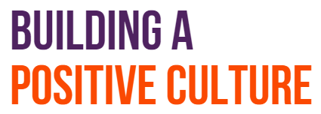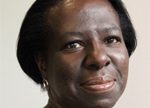COVID-19 support and advice, Management & leadership, Self-improvement, Personal development
Building a positive culture through inclusive decision making
How can you develop a 'safe and secure' culture in your organisation? Cathy Shimmin, Senior Training Consultant at DSC, shares her tips and tricks.
I think about culture, in a work context, as being the character and personality of the organisation. To play out the analogy a little further, character and personality is developed in large part through our foundations, our values, our experiences, the influence of others etc. If in our development, we are lucky enough to have safety, security, love and belonging, esteem and control etc, we have a good chance of having a ‘positive and balanced’ character (albeit with the stack of human flaws we all have). But, how does that pan out in an organisational sense? What is needed?
Safety and Security
People need to feel ‘safe and secure’ in their knowledge and expectations around how decision-making happens. Inclusive decision making does not mean wheeling out a ‘process for inclusion’ just when the big conversations are to be had. It means embedding it into the fabric of the work, the quality of the conversations and the expectations of all staff and volunteers. It also means that as an employee I am clear on who has authority to make decisions on what and to what level I can get involved and influence that – or not.
Let’s be clear – we are talking about inclusive decision-making – the concept of embracing diversity in the interests of innovation, not shared decision-making, the principle of making all decisions together, though I’m not ruling that out as being entirely proper when circumstances allow.
On an organisation-wide level this means ensuring that the infrastructure, systems, processes, policies and procedures are, first of all, present and transparent, and then, that they allow for inclusion.
For example, if I am ‘an outreach worker’, through staff briefing, 121’s, Team Meetings, Department updates – do I have enough information about the organisation in order to contribute purposefully and credibly to a decision about development of our outreach services? Inclusion means that I am informed enough to be in a position to contribute to decision-making. It also means my voice can be heard beyond my own role, team, department, level.
At a team or departmental level, inclusive decision-making means that as a participant of it I know ‘it’s ok if I make a mistake along the way’. It comes with a ‘risk-assessment’ proviso – we’re not going to let New Jo in IT decide a system overhaul on day one. However, it should allow freedom to make decisions about my work at local level. Parameters maybe, and then trust.
Inclusive decision-making means that I can make some decisions entirely by myself (!!) and even if I get it wrong sometimes, or at first, I am within a supportive framework and ethos that allows for learning through mistakes. If my manager encourages and allows decision making from me about my role, they are setting the expectation that I can be involved in and influence decisions in this organisation.
What can you do in your organisation to help people feel safe and secure enough to;
- involve others in decision-making – reports and colleagues?
- get involved in decision-making?
Love and Belonging
At work, our sense of love and belonging comes, in part, from shared values. An organisation with a positive culture has a sound, ‘known’ value base which informs decision making; at all levels in the organisation, in all conversations, the values will inform decisions.
Here’s an example. If, within our values, we aspire to be Visionary, an inclusive decision-making culture will inherently look for possibilities, not limits. It would look far and wide and deep among staff, for the relevant information and keep a solutions focus. To paraphrase G.B.Shaw, it would look for ‘what could be’ and ask “Why not?”. It would be a culture open to opportunities, and willing and able to mobilise resources when they arise. That is how it would demonstrate that it is Visionary.
For decision-making to be inclusive, I need to feel a part of the shared values of the organisation and feel secure that those values are upheld in decision-making processes.
How do your organisation’s values inform the practices and influence the culture around decision-making in your organisation?
Click here to read more on building your organisational vision, and click here to read how we do it at DSC.
The Influence of Others
Inclusion means that for the big conversations I can have confidence in the representative, cross department, pan-hierarchy project team that has been established to ensure far and wide and deep information seeking. When you have a diversity of experience, knowledge and thinking, the team has tools and information to be able to effectively problem solve.
Inclusive decision-making means that I see managers and leaders proactively involving all stakeholders in conversations. It means that I am asked to be involved, I can offer solutions and I get updates on what solutions were taken up and why (framed ‘in the best interest of the beneficiaries).
Behaviour breeds behaviour and I start to involve others, seek experience, trust others – and so character around decision making is developed.
What are the big organisation-wide conversations you are having and how are individuals and teams set up to get involved?
My Experience
There is nothing more de-motivating than being actively ignored when asked, “What’s happening on the frontline then?” and the answer doesn’t provide management with the reason they need to take their ill-informed course of action, but they take it anyway – aaarrrggghhh!!
And breathe … Inclusive decision-making means trusting ground-based expertise and experience. It also means making the assumption that people bring much more to their role than the skills and experience for which they were hired. When we ask people “How did this used to happen in your old job? Has anyone seen this anywhere else? Is this familiar to anyone? Has anyone had experience of this before? Does anyone know … ?” All those questions actively seek ‘other’ – other views of the world, other experiences, other knowledge and insights. Inclusion needs other. To feel included I need to be consulted for my experience, knowledge and expertise and know that job titles are not the indicators of who might be the expert on different things.
What can you say about your organisation and leadership’s trust in ground based expertise?
To close, an apology. Sorry if you were expecting a nice, neat process to create your positive decision-making culture. There isn’t one. It’s more journey that destination and along the way we need to do lots of little things to contribute to the road surface and scenery.
To find out how DSC can help you to embed a culture of shared decision making, contact us here.



